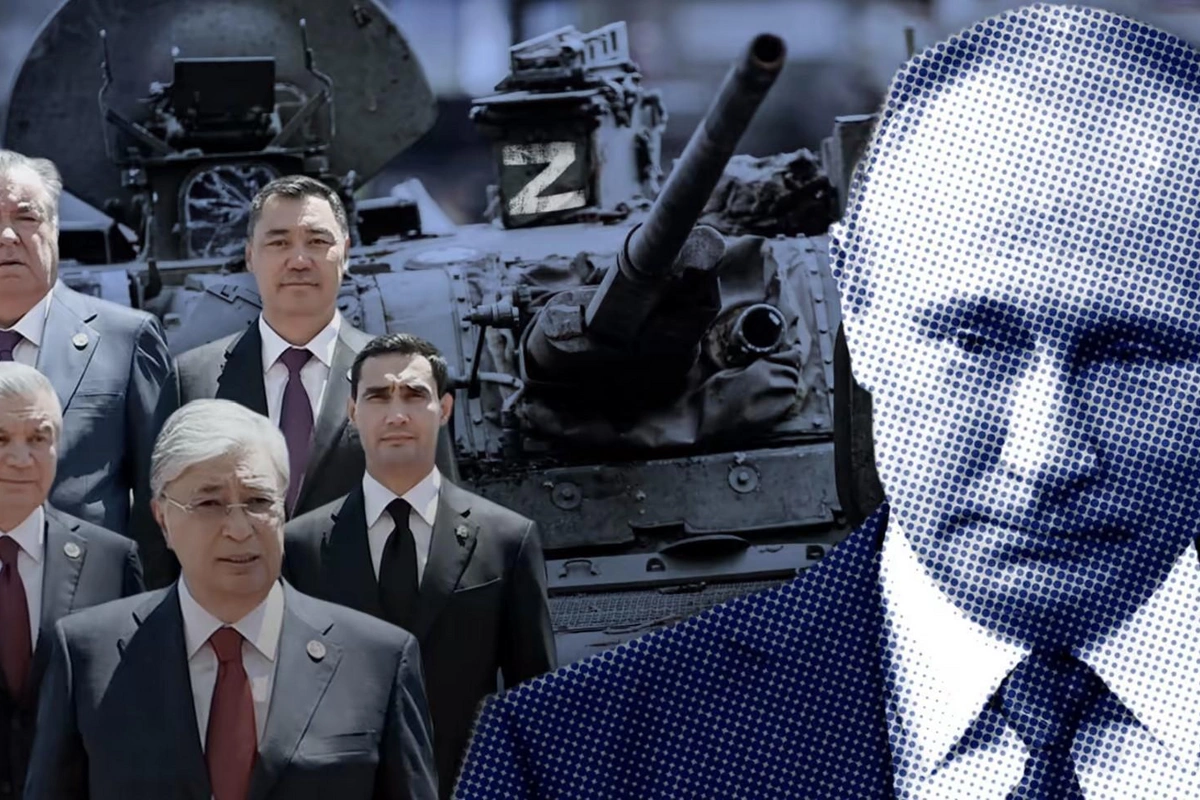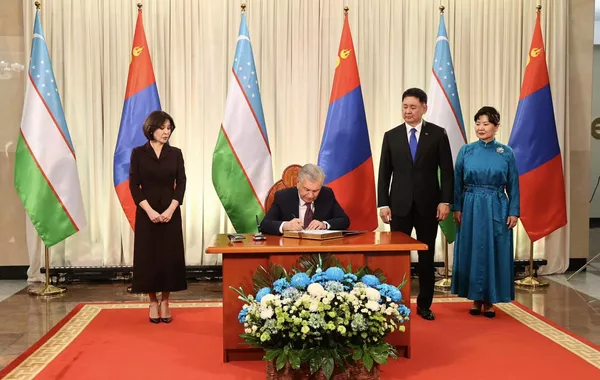
© Nikkei montage/Source photos by Getty Images
After Russian President Vladimir Putin broke relations with Europe and declared a “turn to the East,” propagandists and analysts close to the Kremlin spoke of Moscow’s exceptional prospects in the “Eurasian space.”
But in March, when the Putin-sponsored Valdai Discussion Club hosted the Fifth Central Asian Conference, the mood had shifted. While participants from Russia spoke of ideologies and cultural differences between the West and the “global South,” Central Asian representatives wanted to talk about the hard realities of security and economics, The Caspian Post reports citing CEPA.
Rustam Khaidarzoda, from the Tajikistan National Academy of Sciences, wrote to delegates that demographic growth meant his country urgently needed to create new jobs and wanted Russian investment. At the same time, Professor Guzel Maitdinova, from the Russian-Tajik (Slavic) University, emphasized the importance of looking beyond Russia for new communications links.
Central Asian countries benefit from things that cause problems for Russia, including increased discounts on energy as a result of sanctions, Aza Migranyan, a researcher at the Center for Post-Soviet Studies at the Russian Academy of Sciences, told the conference. Sanctions also mean Kazakhstan, Kyrgyzstan, and Uzbekistan, which act as backdoor intermediaries for Russian trade, have been able to use Moscow’s isolation to develop their own logistical and financial infrastructure.
Even on the Valdai Club website, Central Asian authors emphasized that the region is gaining greater independence and turning to a “multi-vector” policy that does not seek conflict with the West.
A report on Russia’s role in Central Asia, published by the Berlin Carnegie Center last year, found China’s economic role in the region is growing, though Moscow’s influence is still strong. Kazakhstan and Kyrgyzstan, for example, remain dependent on Russian sugar and grain supplies, and the region’s transport infrastructure is still heavily tied to Russia.
Kazakhstan and Kyrgyzstan’s membership of the Eurasian Economic Union (EAEU), a largely ineffective association of post-Soviet states, also helps contain Chinese trade and economic expansion in local markets, the report found.
Russia insists it is the only nation capable of assuring security in the region, although in practice China’s influence is growing. Moscow still has close ties with local security forces and the capability to interfere in the internal affairs of other states through the post-Soviet Collective Security Treaty Organization (CSTO), but Beijing is developing security cooperation, particularly with Tajikistan, where Chinese forces have a significant presence.
The Kremlin, despite China’s increasing influence, is behaving as if it owns the region. At the end of April, a group of Russians were detained in Kyrgyzstan for recruiting mercenaries for the Russian army. They included Natalya Sekerina, an employee of the Russia House, a cultural agency with close ties to the Kremlin, and Viktor Vasilyev, part of an information network run by murdered Wagner mercenary group leader Yevgeny Prigozhin.
The arrests were a symptom of growing tension between the two states. Russian security forces raided Moscow’s Bodrost bath complex earlier in April and detained several dozen Kyrgyz citizens who they said were in the country illegally. In response, the Russian ambassador was summoned to the Kyrgyz Foreign Ministry to be handed an official note of protest.
Under the cover of their campaign against illegal immigration, Russian authorities have also snatched migrants off the street and sent them to the frontline in Ukraine, making workers from Central Asia nervous about travelling there to make up Russian labor shortages.
Although economic ties remain strong, the countries of Central Asia are seeking ways to reduce their dependence on Russia, and high-level officials, including Prime Minister Mikhail Mishustin, have raised concerns that the region’s leaders are distancing themselves from Moscow.
There is a sound basis for their fears. “China became stronger, and Russia lost is authority,” said Nargis Kasenova, director at Harvard University’s Davis Center for Russian and Eurasian Studies. “China looks like a very attractive partner,”
China is already one of Kyrgyzstan’s main economic partners and is growing in importance, with trade totaling $20bn in 2023, a 32% increase on the previous year. China’s bilateral trade with Kazakhstan increased by 30% in the same period, reaching a record high of $41bn. Beijing also owns five oil fields in Kazakhstan, and is Uzbekistan’s main trade and investment partner.
Russia’s aggressive assertion of its dominance in the Central Asian region looks likely to backfire on Moscow and accelerate this trend. The Kremlin depends on Central Asia in nearly all the ways the region depends on Russia, and by alienating its neighbors through espionage, mistreatment of migrant workers, and the recruitment of mercenaries, Moscow is simply accelerating its own long-term decline and loss of influence.
Share on social media
